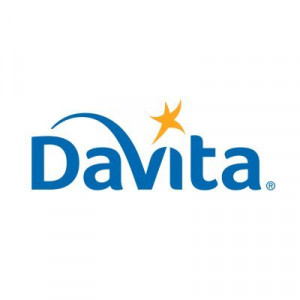Job Summary
The infection preventionist is responsible for the facility infection prevention and control program (IPCP), which is designed to provide a safe, sanitary, and comfortable environment and to help prevent the development and transmission of communicable diseases and infections.
Essential Functions
The essential functions listed below are typical examples of work performed by positions in this job classification. They are not designed to contain or be interpreted as a comprehensive inventory of all duties, tasks, and responsibilities. Employees may also perform other duties as assigned.
• Oversight of the IPCP, which includes, at a minimum, the following elements:
o A system for preventing, identifying, reporting, investigating, and controlling infections and communicable diseases for all residents, staff, volunteers, visitors, and other individuals providing services under a contractual arrangement based upon the facility assessment... and following accepted national standards;
o Written standards, policies, and procedures for the program, which must include, but are not limited to:
A system of surveillance designed to identify possible communicable diseases or infections before they can spread to other persons in the facility;
When and to whom possible incidents of communicable disease or infections should be reported;
Standard and transmission-based precautions to be followed to prevent the spread of infections;
When and how isolation should be used for a resident; including but not limited to:
• The type and duration of the isolation, depending upon the infectious agent or organism involved, and
• A requirement that the isolation should be the least restrictive possible for the resident under the circumstances.
The circumstances under which the facility must prohibit employees with a communicable disease or infected skin lesions from direct contact with residents or their food, if direct contact will transmit the disease; and
The hand hygiene procedures to be followed by staff involved in direct resident contact.
o A system for recording incidents identified under the facility’s IPCP and the corrective actions taken by the facility.
o Personnel must handle, store, process, and transport linens so as to prevent the spread of infection.
o The facility will conduct an annual review of its IPCP and update their program, as necessary.
Must perform the following duties and responsibilities:
• Collaborate with the facility leadership and the medical director to develop, implement, and evaluate the annual infection prevention goals and action plan
• Partner with facility leaders, physicians, and local, state, and national agencies on activities related to infection prevention
• Establish a facility-wide system for the prevention, identification, investigation, and control of infections of residents, staff, and visitors, including surveillance designed to identify possible communicable diseases or infections before they spread
• Conduct outbreak investigations
• Maintain a system for reporting possible incidents of communicable diseases to local, state, or national agencies as required
• Oversee the antibiotic stewardship program and monitor residents’ antibiotic use
• Assess the need for, develop, and present IPCP in-service education for individual departments, general orientation, and annual review as needed; education includes but is not limited to:
• Hand hygiene
• Cleaning, disinfection, and sterilization
• Specific direct and indirect care settings
• Therapeutic and diagnostic procedures and devices
• Use of isolation/barrier precautions when indicated
• Resident placement, transfer, and discharge
• Environmental hazards
• Use of patient care products and medical equipment
• Resident immunization programs
• Assess the need for, develop, and implement written policies and procedures for infection control, including those for standard precautions and for transmission-based precautions, including when these should be used, the duration of use, and the type of precautions needed for a particular infection or organism
• Enforce policies prohibiting staff with communicable diseases or infected skin lesions from direct contact with residents and their food, and enforce hand hygiene policies consistent with accepted standards of practices
• Serve as a member of the quality assessment and assurance committee
• Be accountable for surveillance of healthcare-acquired and community-acquired infections for residents, staff, volunteers, and visitors
• Maintain current knowledge of federal, state, and local regulations and ensure that the facility leaders are informed of appropriate issues; understand and comply with infection control, safety, and OSHA procedures and regulations
Minimum Qualifications
Any combination of education and experience that would likely provide the required knowledge, skills, and abilities; as well as any required licenses or certifications.
Education:
• Have primary professional training in nursing, medical technology, microbiology,epidemiology, or another related field; and have completed specialized training in infection prevention and control as specified in F880 of Appendix PP. • Experience: Be qualified by education, training, experience, or certification in infection control. Must work at least part-time at the facility.
Knowledge, Skills, and Abilities:
These are the observable and measurable attributes and skills required to successfully perform the essential functions of the job; they are generally demonstrated through qualifying experience, education, or licensure/certification.
The infection preventionist should be able to:
• Conduct analysis and formulate conclusions
• Identify occurrences, reservoirs, incubation periods, periods of communicability, modes of transmission, signs, and symptoms, and susceptibility associated with the infectious disease process
• Interpret laboratory and diagnostic tests
• Differentiate between colonization and infection
• Differentiate between prophylactic, empiric, and therapeutic uses of antimicrobials
• Foster effective working relationships and build consensus
• Maintain confidentiality of sensitive information
• Plan, organize, prioritize, work independently, and meet deadlines
• Use judgment and make sound decisions
• Work effectively with individuals at all levels of the organization
• Speak, read, write, and understand English effectively at a level appropriate for the safe and effective performance of the job
Physical Requirements and Working Conditions
The physical requirements for this job and the working conditions under which it is typically performed are available from the Occupational Safety and Health Administration. Reasonable accommodations will be made to enable individuals with disabilities to perform the essential functions of the job.









